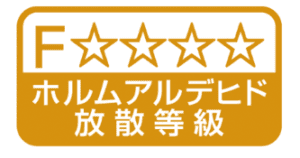Introduction
In the competitive market for commercial decorative materials, ensuring product quality is paramount for business clients, including hotels, office spaces, and retail chains. Japan, known for its rigorous standards, emphasizes testing and certification to guarantee safety, environmental compliance, and durability.
This blog explores the essential quality tests and certifications required in Japan, why they matter, and what conditions products must meet to comply. By understanding these standards, businesses can make informed decisions when choosing reliable suppliers for their projects.
1. Understanding Japan’s Testing and Certification Standards
Characteristics of the Japanese Market
Japan’s commercial decorative materials market is characterized by:
- Health and Environmental Focus: Strict standards for formaldehyde emissions and volatile organic compound (VOC) levels.
- Functionality and Durability Requirements: Materials must exhibit fire resistance, water resistance, and scratch resistance.
- Stringent Compliance for Big Buyers: Large corporations like Home Depot and IKEA prioritize certified suppliers for their strict quality demands.
Key Certifications and Tests
(1)JIS (Japanese Industrial Standards): Establishes benchmarks for product performance and reliability.
(2)F☆☆☆☆ Certification: The top-tier standard for formaldehyde emissions, required for most interior materials.
(3)SG Mark (Safety Certification): Confirms that the product meets Japanese safety guidelines.
(4)Fire Resistance Certification: Ensures compliance with the Fire Service Act for materials used in construction.
2. Why Are These Certifications Necessary?
1.Protecting Consumer Health and Safety
- Decorative materials with low emissions contribute to better indoor air quality, safeguarding users from harmful substances like formaldehyde and VOCs.
- Certified materials ensure safer environments for both employees and customers in commercial spaces.
2.Legal and Regulatory Compliance
- Japan’s Building Standards Act requires compliance with strict fire safety and environmental regulations.
- Non-certified products are not eligible for legal sale or use, restricting market access.
3.Enhancing Supplier Trust and Reputation
- Certifications validate a supplier’s commitment to quality, making them more attractive to large buyers and long-term partners.
- Corporate clients, especially global brands, view certifications as essential for meeting internal standards.
4.Reducing Operational Risks
Using certified products minimizes the risk of safety incidents or legal disputes, ensuring smooth business operations and protecting brand reputation.
3. Key Tests, Requirements, and Conditions for Certification
Essential Testing Standards
1.F☆☆☆☆ Certification
- Requirement: Formaldehyde emissions ≤ 0.3mg/L, verified through JIS A 1460 testing methods.
- Purpose: The highest safety standard for formaldehyde, making materials suitable for residential and commercial use.
2.Fire Resistance Certification
- Requirement: Pass combustion performance tests per ISO 5660 or Japan’s Fire Service Act.
- Purpose: Ensures materials are safe for high-traffic or high-risk environments, such as hotels and retail stores.
3.Durability and Functionality Testing
- Requirement: Compliance with JIS K 5600 standards for scratch resistance, water resistance, and overall durability.
- Purpose: Guarantees that materials can withstand the demands of commercial spaces.
Supplier Requirements for Certification
- Documentation: Suppliers must provide comprehensive testing reports and certification documentation.
- Accreditation: Certifications must be issued by reputable third-party agencies such as SGS or Intertek.
- Production Standards: Compliance with ISO 9001 (Quality Management) and ISO 14001 (Environmental Management) is often required.
4. Selecting a Reliable Supplier
What to Look for in a Supplier
(1)Certifications: Ensure the supplier holds relevant certifications, including F☆☆☆☆, SG Mark, and fire safety approvals.
(2)Custom Solutions: A reliable supplier should offer products tailored to your specific needs, such as custom designs or materials for unique applications.
(3)Supply Chain Transparency: Check the supplier’s ability to provide detailed product traceability and testing data.
Why Third-Party Verification Matters
- Partnering with suppliers who work with accredited third-party agencies adds an extra layer of reliability.
- Third-party verification ensures that certification claims are genuine and meet the highest standards.
Conclusion
For business clients, choosing decorative materials that pass Japan’s rigorous quality tests and certifications is essential for ensuring safety, compliance, and long-term value. Reliable suppliers with proven certifications not only meet legal and market demands but also build trust and enhance brand reputation.
When sourcing commercial decorative materials, prioritize suppliers who demonstrate a commitment to quality and compliance, as this decision directly impacts the success and safety of your projects.








